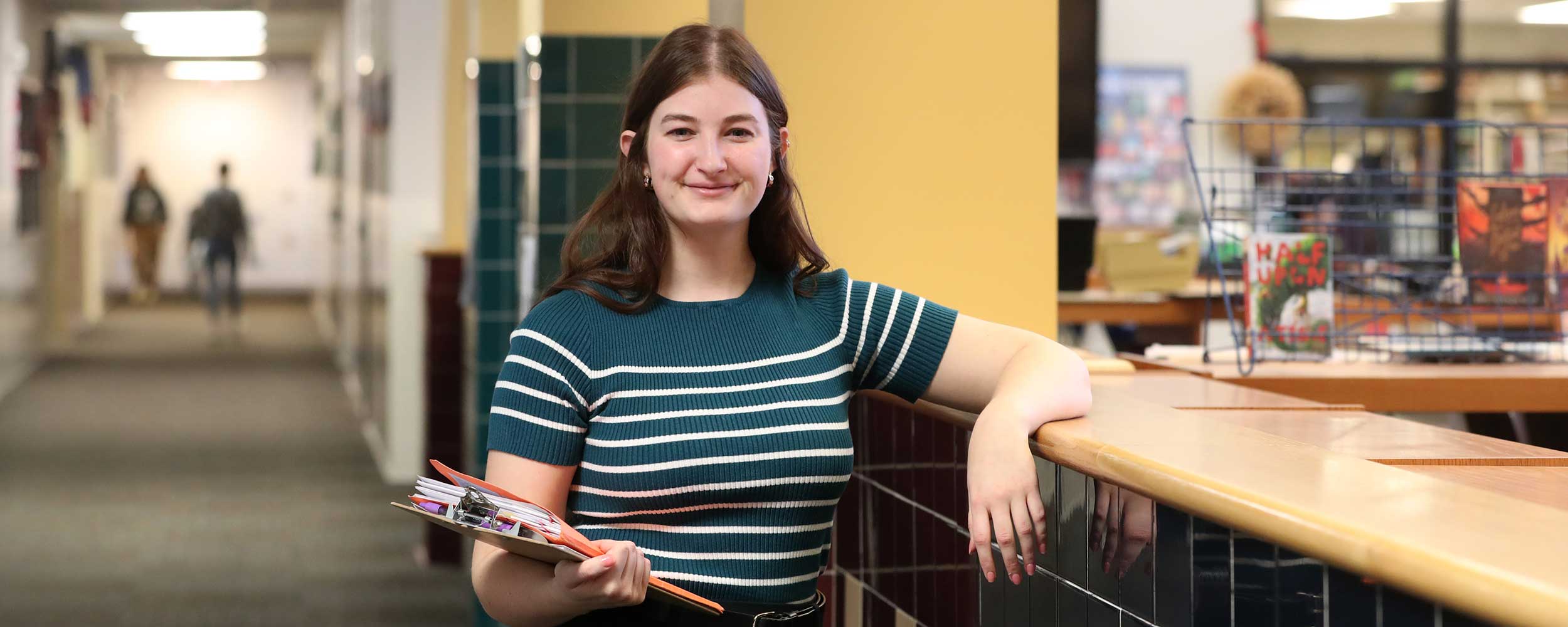
Addressing the need: Project UPCAST and school-based mental health
Wednesday, April 2, 2025
Media Contact: Kayley Spielbusch | Digital Communications Specialist | 918-561-5759 | kspielb@okstate.edu
The need for childhood and adolescent mental health care is great.
In Oklahoma, only six of the 77 counties have childhood and adolescent psychiatrists.
“The number of children in Oklahoma with mental health needs is skyrocketing,” said Sara Rich, Ph.D., clinical assistant professor of psychiatry and behavioral sciences at Oklahoma State University Center for Health Sciences and OSU BRIDGE Center co-director. “There continues to be a gap in the availability of services for them within the community.”
The BRIDGE Center — Building Resources and Interventions for Districts Seeking Growth in Education — is working to transform mental health services in schools with Project UPCAST, a federally funded grant designed to address these needs.
The grant supports school-based mental health training through recruitment and mentoring. In a collaboration between OSU’s School Psychology program and the Department of Psychiatry and Behavioral Sciences at OSU-CHS, school psychology and school counseling students can complete their practicum work in local, high-needs schools.
Project UPCAST trains students through several different avenues. Each month, the team hosts a mental health meeting with all graduate students participating in UPCAST, including skill development or informational sessions.
The program also utilizes a peer group supervision model where practicum students bring a case from their current work for the team to analyze together from multiple perspectives. This prepares them for working in multidisciplinary teams.
Additionally, Project UPCAST hosts specific mental health training sessions for participants and community members, which is what makes the program unique, Rich said.
“Each trainee gets supervised, on-the-job training through UPCAST staff and funding. They have the opportunity to collaborate across mental health and educational disciplines with advanced coaching on things such as Youth Mental Health First Aid,” she said.
"Upcast has allowed me to learn from professionals in many different areas while making
connections that will be beneficial when I graduate. These opportunities are invaluable
in allowing me to develop professional competencies."
Bridgett McGill is a school psychology Ph.D. student and Project UPCAST practicum student. She is currently in her second year with UPCAST at Union Public Schools and said the program has given her experiences she would not have gained anywhere else.
“UPCAST has allowed me to learn from professionals in many different areas while making connections that will be beneficial when I graduate. These opportunities are invaluable in allowing me to develop professional competencies,” McGill said.
Many elementary and secondary students who experience mental health challenges do not receive the support they need to succeed, so Project UPCAST is just as important to the program’s partner schools.
Cade Brownell, the training and consulting manager for Project UPCAST, emphasized the importance of school-based mental health.
“Unaddressed mental health needs increase the risk for suspension, drop out and involvement in the juvenile justice system,” Brownell said. “Meeting the needs of our children is critical to maximize their ability to learn in school, build resilience and be better prepared for a successful transition into adulthood.”
Project UPCAST is entering its third year at OSU and has supported the training of 12 school psychology students and five school counseling students. The program is preparing to add an additional seven school counseling students.
Looking ahead, the UPCAST team aims to continue expanding training and support to students and supervisors within the profession.
